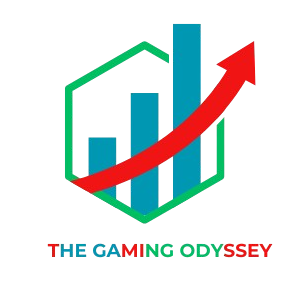Online gaming has rapidly evolved from a niche hobby into a global phenomenon, redefining how people interact, compete, and experience entertainment. This digital revolution has transformed gaming into a dynamic industry that blends technology, social connection, and creativity, shaping modern culture and bridging geographical divides.
The social aspect of online gaming is one of its most compelling features. Unlike traditional single-player games, online gaming allows players to connect with others in real-time. Whether collaborating to defeat enemies in cooperative missions or engaging in intense player-versus-player battles, gamers form bonds that often extend beyond the screen. Platforms like Discord and in-game chat systems enhance these interactions, fostering communities where players share strategies, stories, and camaraderie.
Technological advancements have played a operabola login pivotal role in the growth of online gaming. High-speed internet, advanced graphics, and powerful gaming hardware have enabled immersive experiences previously unimaginable. Cross-platform compatibility allows players on different devices to join the same games, while cloud gaming services like Nvidia GeForce NOW and Xbox Cloud Gaming provide access to high-quality games without expensive hardware. These innovations have democratized gaming, making it accessible to a broader audience.
Online gaming also serves as a creative outlet. Games like Minecraft and The Sims empower players to design worlds, build intricate structures, and tell stories, blending artistry with interactivity. Massive multiplayer games, such as World of Warcraft and EVE Online, offer players opportunities to craft unique narratives within expansive virtual universes. This creative potential encourages players to think outside the box, inspiring innovation and collaboration.
Esports, a competitive facet of online gaming, has risen to prominence as a global phenomenon. Professional gaming tournaments draw millions of viewers and offer significant prize pools, rivaling traditional sports in popularity. Games like League of Legends and Valorant have built passionate fan bases, turning skilled players into celebrities. Platforms like Twitch and YouTube Gaming amplify this growth, allowing fans to follow their favorite players and teams while engaging with the broader gaming community.
Despite its many advantages, online gaming faces challenges. Cyberbullying, toxic behavior, and concerns about addiction are prevalent issues that require ongoing attention. Developers and platform providers are implementing measures such as reporting systems, moderation tools, and mental health resources to create safer environments. Education about healthy gaming habits is also crucial for ensuring players enjoy games responsibly.
The impact of online gaming extends beyond entertainment. It fosters cultural exchange by connecting players from different parts of the world, encouraging mutual understanding and collaboration. Gaming is also being leveraged for educational purposes, with some titles designed to teach problem-solving, teamwork, and critical thinking. Additionally, virtual reality (VR) and augmented reality (AR) technologies are pushing online gaming into new frontiers, offering unprecedented levels of immersion.
In conclusion, online gaming is much more than a pastime; it’s a transformative force in the digital era. By combining technology, creativity, and community, it has become a powerful medium for entertainment and connection. As advancements continue to reshape the landscape, the future of online gaming promises even more exciting opportunities for players and creators worldwide.
